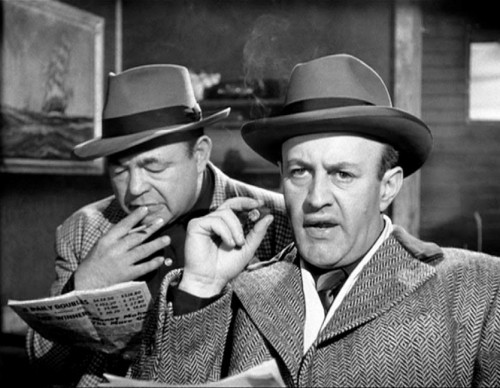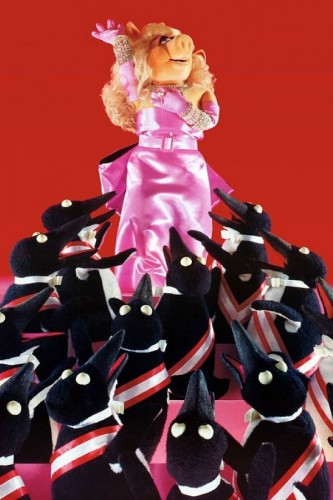
Don’t miss this ninth installment of author Ted Scofield’s series on everybody else’s biggest problem but your own. If you missed one or more of the previous installments, you can find them here. New installments will be posted every two weeks, on Tuesdays.
“On Wall Street, a Culture of Greed Won’t Let Go,” The New York Times headline warned on July 16, 2013.
Turns out that “industry insiders,” 250 of them, responded to an online survey and 23% said that “they had observed or had firsthand knowledge of wrongdoing in the workplace.” But if the horror of purloined paper clips didn’t convince you, the Times continued:
If that’s not attention-grabbing enough, consider this: 24 percent said they would engage in insider trading to make $10 million if they could get away with it.
The article concluded ominously, “the insidious culture of greed is back – or maybe it never left.”
***
 We’re on a quest for a generally applicable definition of greed, and to help us along the way, we’re exploring nine commonly cited attributes of the condition, symptoms that inevitably arise when the subject is discussed.
We’re on a quest for a generally applicable definition of greed, and to help us along the way, we’re exploring nine commonly cited attributes of the condition, symptoms that inevitably arise when the subject is discussed.
Today we’ll dive into vocation and ponder if the people in some professions are inherently greedier than the people in others. Can a vocation itself be labeled “greedy”? From my experience discussing the topic, many of us emphatically believe the answer to both questions is Yes. So let’s take a look, and “Wall Street” is, of course, an obvious place to start.
For $10 million, the Times told us, 24% of the surveyed finance industry workers would trade on insider information if they would not get caught. 24%. Not quite one of four. The conclusion is that this number is evidence of an “insidious culture of greed” in the financial services industry. The implication is that finance workers are greedier than the rest of us. Wall Street, bad. Main Street, good.
We’ll ignore the fact that the Times chose not to mention that Labaton Sucharow LLP released the survey, a law firm “which established the first national practice exclusively dedicated to representing SEC whistleblowers”; we’ll assume the results reflect reality.
24%. $10 million payday, scot-free. Is that number disproportionately high?
As reported in The Day America Told the Truth, Peter Kim and James Patterson polled 2,000 adult Americans, a geographically balanced, random sample, asking: “What are you willing to do for $10,000,000?”
- 25% of American adults would abandon their entire family for $10 million
- 25% would abandon their church
- 23% would become prostitutes for a week or more
- 7% would murder a stranger
Unfortunately the random adults were not asked if they’d trade stocks on inside info for $10 million, but given 25% would abandon their families, does anyone think the number would be lower? I don’t. I surveyed 62 random New Yorkers and 58 of them, 94%, said they’d play the Gordon Gekko role for $10 million if they could get away with it.
In further support of the point, that the “culture of greed” extends far beyond one oft-vilified industry, Gallup polled 2,013 working adults and found “the No. 1 reason people chose their present line of work: the money.”
 What about college students? They’re idealistic – right? – immune to adults’ shallow pursuit of stuff, enamored with higher order existential musings.
What about college students? They’re idealistic – right? – immune to adults’ shallow pursuit of stuff, enamored with higher order existential musings.
Ha! In 2014, 73% of college freshman said a “very important” reason for deciding to go to college was “to be able to make more money.” Only 46% said “to make me a more cultured person.”
In 1970, 39% of freshman said that “being very well off financially” was an essential or very important life objective. In 2014, the number was 82%, the students’ #1 highest priority life goal.
What lost out to money? Everything, but here’s a small sample: making a contribution to science (25%), becoming a community leader (36%), influencing social values (43%), developing a meaningful philosophy of life (45%), becoming an authority in my field (60%).
The director of the annual study concluded “our data shows greed is alive and well” on American college campuses. In a Times op/ed, David Brooks lamented, “Affluence, once a middling value, is now students’ top life goal.”
Given all of this disconcerting data, if we do indeed labor in a “culture of greed,” can anyone honestly argue it is limited to, or even especially prevalent on, “Wall Street”? No. So where do we get this notion that financial services workers, and their evil twin boogeyman, CEOs/corporate executives/management, are a horrifying troop of Ebenezer Scrooges?
In 2010, NBC News reported “in political campaign ads across the country, references to Wall Street have become synonymous with greed and corruption.” In 2013, Senator Rand Paul promised “to steer [his] party away from Wall Street.”
Just last week, Vermont politician and presidential hopeful Bernie Sanders briefly visited Manhattan. Standing in front of a Verizon store with some angry union members, Bernie proclaimed “Their greed has no end!”
 He was, in case you couldn’t guess, referring to “CEOs,” a convenient receptacle for the “perennial outrage” of – whom? – all of us non-CEOs, I presume.
He was, in case you couldn’t guess, referring to “CEOs,” a convenient receptacle for the “perennial outrage” of – whom? – all of us non-CEOs, I presume.
It’s selective outrage, certainly. Google’s Eric Schmidt has a $100 million payday and no one goes apoplectic. Hey, we like Google. We understand Google. It answers questions for us, gives us free email.
But when JP Morgan Chase’s Jamie Dimon pockets $20 million? Watch out. The internet reacts as if a naked Kardashian livestreamed a positive pregnancy test.
But let’s back up. Is Bernie correct? Are “CEOs” disproportionately greedy? We’ve already established that workers at every level, across all professions, not to mention college students, are motivated by money, and by no means can we exclude corporate executives from that deep pool. But let’s dive a litter deeper.
Bernie was in New York to support the Communication Workers of America (CWA). In 2013, the CWA’s president took home a salary of $200K, no doubt a smidgen more than the Verizon worker who taught you how to sync your new iPhone. In 2011, the union’s leaders granted themselves $225 a week in unreceipted expenses, costing the members $156,000 annually. Without member approval, the leaders also gave themselves a 401(k) plan with 15% of salary contributions, and they charged meals that averaged $225 per plate and hotel rooms that averaged $600 a night. Sounds very “Wall Street,” doesn’t it?
Okay, labor unions are well-known to be corrupt, we may say. What about a broader look at non-management workers? After stating that “greed in American management is out of control,” Kim and Patterson turn their focus to workers:
The majority of Americans are malingerers, procrastinators, or substance abusers at work. American workers willingly told us the sad truth about the American work force and why it is becoming ever less competitive.
Specifically, the authors’ data reveals:
- Workers “frankly admit” that they spend more than 20% of their time at work not working
- 50% admit to calling in sick when not sick, “and doing it regularly”
- Only 25% give their best effort at work
- 17% regularly drink alcohol or use illegal drugs on the job

Before you freak out, or conversely start cheering, let me be clear: My goal is not to condemn workers and exonerate executives. I am not making excuses for one group or another. My goal is to demonstrate that if Wall Street is greedy, Main Street is equally so, and to draw a distinction between the two is sheer folly. Our “insidious culture of greed” is not limited to a street in lower Manhattan, or one industry, or the corner offices. In terms of understanding greed, vocation is not instructive; being an American is.
But that unifying reality doesn’t polarize voters, it doesn’t open checkbooks, it doesn’t sell ads, “news” and movie tickets. Politicians, pundits and “journalists” earn a buck by dividing us. They need for us to hate the other guy so they can – wait for it – make money for themselves.
(And, at least when it comes to politicians, Americans are not fooled. A 2014 Vanity Fair/60 Minutes poll revealed that 80% of Americans believe politicians are “driven mostly by greed.” Only 17% believe our elected officials are driven by good.)
How did Michael Moore attain a net worth of $50 million and afford a $5.2 million lakefront vacation home? By attacking the 1% and, without a hint of irony, saying things like this: “Capitalism is actually legalized greed.” I prefer this Moore quote, which is quite accurate in my opinion: “There’s a gullible side to the American people. They can be easily misled.” Remember that the next time you plunk down $15 to see one of Moore’s movies.
Hypocrisy is not limited to for-profit 1% capitalists though.
Earlier this year Columbia University president Lee Bollinger urged graduating seniors to address “persisting inequality, especially of wealth.” Bollinger’s 2012 compensation at the renowned nonprofit institution was $3.4 million.
In 2012, Yale’s President, Richard Levin, gave a speech to undergraduates in which he addressed “income disparity.” He asked: “How do we create a sustainable foundation for long-run prosperity, with good jobs created in ever-increasing numbers to spread the fruits of growth more equitably across the population?” When Levin retired in 2013, his exit bonus was $8.5 million. Spread the fruits of growth more equitably? Perhaps we can all be nonprofit university presidents and punch our ticket into the 1%!
Speaking of which, who exactly is the much-maligned 1%? Examining the most recently available IRS data, to join the 1% we need taxable income of $307,000. Assuming a typical effective tax rate of 25%, that’s take-home pay of $230,250. According to research out of Indiana University, 82% of the 1% are not in the financial services industry. The 1% are primarily salaried non-finance employees (30%), finance industry workers (18%), physicians (14%), and attorneys (8%). Oh, if you’re a sports fan, the minimum salaries in the NFL, NBA and MLB are high enough to place every single player squarely in the top 1%.
So, where does this leave us? Can we define greed based on vocation? Can we point our finger at our neighbor who works for [fill in the blank] and label her “greedy”? Or perhaps that’s a tad too intimate. Perhaps we must be content to point our finger at someone or something further afield, an impersonal specter like Wall Street or Michael Moore or Jamie Dimon or Lee Bollinger, to assure ourselves that greed is everybody else’s problem. Personally, the more time I spend researching and writing this series, the more difficult it becomes for me to avoid pointing my finger at the man in the mirror. How about you?

COMMENTS
2 responses to “Everybody Else’s Biggest Problem, Pt. 9: The Man in the Mirror”
Leave a Reply













Americans need boogeymen to blame for their own selfishness and each political ideology has its own set of boogeymen. The left demonizes corporations, Wall Street and executives. The right demonizes people on public assistance, substance abusers and immigrants. Both sides need to look in the mirror.